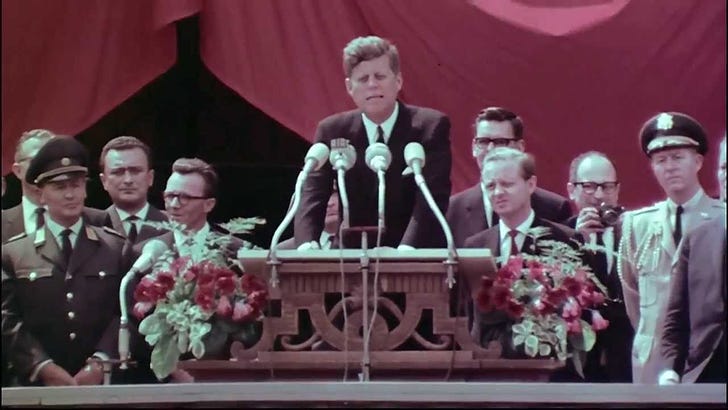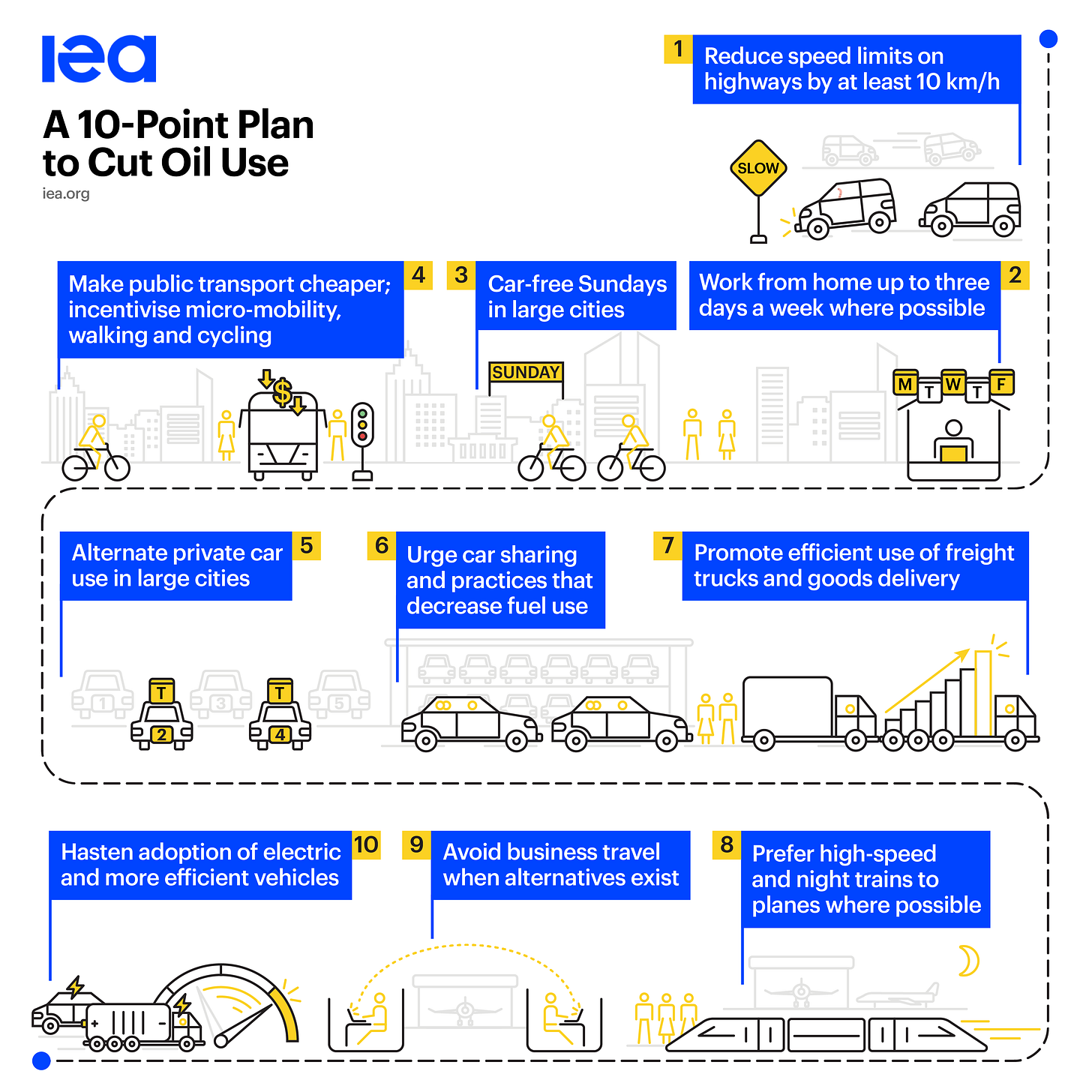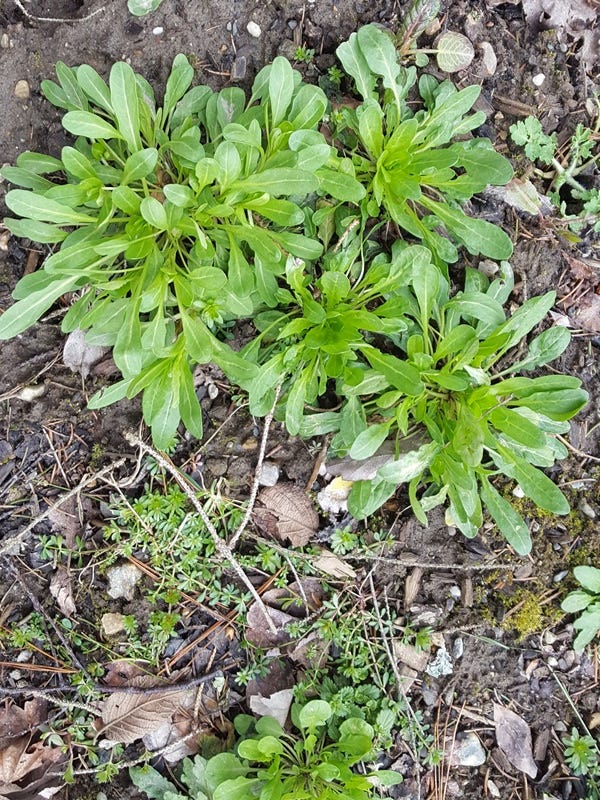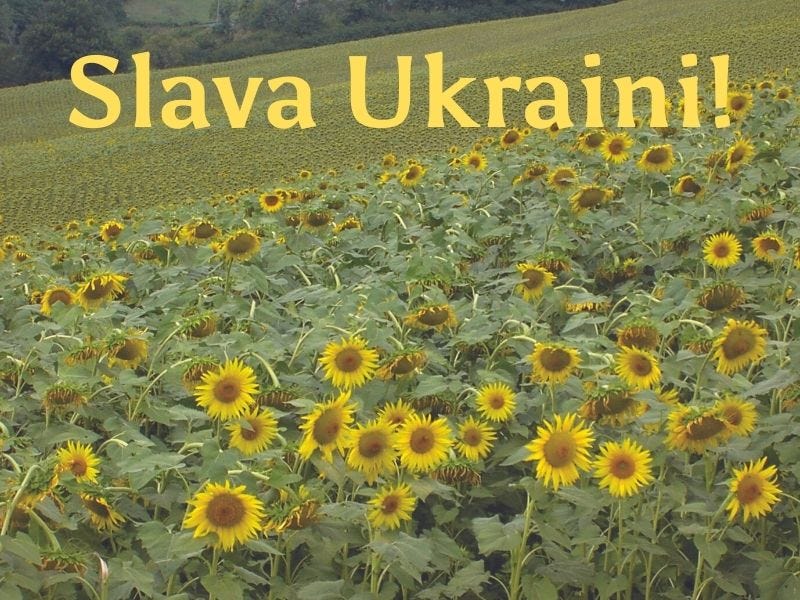We are all Ukrainians now
We should be saying, I am Ukrainian, just as President Kennedy called himself a Berliner.
I’ve been doing a lot of soul searching these past weeks, asking myself how the events in Ukraine should change my plans, my focus, and what I do in the months ahead.
I want to do something, not just send money or hang a flag. But I don’t speak Ukrainian, Russian, or Polish. I don’t know how to shoot a gun, or give first aid, or direct soldiers. I wouldn’t even be much good at digging graves. (Grim, yes, but this is a grim time.) I can cook for large numbers but that job seems to be well in hand.
“You’re taking this very personally,” said my son (who is, for those who’ve asked, still in Beijing). That’s right. I am taking it personally. “Я українець, Ich bin ein Berliner.” I am Ukrainian, I am a Berliner. [I have been reminded that German has complexities that English does not, and that President Kennedy is said to have called himself a donut. But that’s for another day, maybe another lifetime.]
We Americans have, for more than 150 years, been a long way from conflicts devastating people in other parts of the world. But we are not an island. And we are not dependent on Russia crude oil and natural gas.
Energy independence has been a talking point for decades, but never has it been as important as it is now. At the same time, we urgently need to move away from fossil fuels. This led me to think about the challenges facing Europeans. The EU’s importance has become clear, but its energy vulnerability is also clear.
We can’t let the safety of distance keep us from feeling for those suffering, and that’s why we need to see ourselves as citizens of Ukraine, and global citizens, even as we take stock of our own countries’ energy futures.
In 1963, President John Kennedy gave a speech in West Berlin, confirming support of the United States for West Germany after the Soviet-supported East Germany erected the Berlin Wall. “All free men, no matter where they may live, are citizens of Berlin.” (Read the text of Kennedy’s speech.)
I remember the Wall. I made a trip by train to Krakow, Poland, via West and East Berlin in 1985, when I was pregnant with my first child. Poland was not part of the USSR but it was under Soviet influence. An encounter with an East German border guard taught me that having one’s mouth go dry with fear is a real thing.
But that was nothing. Nothing happened. I was fine. I was carrying a US passport and heading home to London.
Today, Berlin has been reunited. Germany is a vital US ally. But they are dependent on Russian oil. (Keep in mind that we Americans use more energy per person than most Europeans. We can’t claim any virtue here, just larger domestic sources of energy.)
If Europe would stop buying Russia oil and gas, it would be perhaps a mortal blow to Putin’s regime. But who are we to tell Germans or Italians to make sacrifices that we aren’t called upon to share?
When Russia invaded Ukraine on 24 February, the most important words were short and sweet. “The fight is here; I need ammunition, not a ride.” Ukrainian president Volodymyr Zelenskyy is now known around the world, as is the Ukrainian flag.
For all the heartbreaking news of war crimes, and the hideousness of the invasion itself, it is uplifting to realize that all the black swans of the past month have been positive ones. (“Black swans” are completely unforeseen and unexpected events; it’s a term commonly used in the finance world.) The Russian military was far less powerful than anyone knew. The Ukrainians were far stronger than anyone imagined. The liberal democracies of the world stood up, and stood together.
If fear is contagious, so is bravery. Let us all be brave now, even if we’re uncertain about the future. Brave actions should make us feel scared. Courage calls for sacrifice. Let’s demand courage from our leaders, and make courageous choices ourselves.
Meanwhile, I’m also thinking small. Ever since the war in Ukraine began, I have doubled down on my efforts to reduce fossil fuel use.
You might say that my energy saving for Ukraine is like the American parents who admonished their children to clean their plates because children in some distant country were starving. But why shouldn’t we all, practically as well as rhetorically, be in this together? So I tried to imagine myself as a Berliner who wants to cut off that flow of money to Russia. Here are a few things I have done in the past month:
Driven even less than I did before. I found a little folding luggage cart in the attic (from the days when suitcases didn’t have wheels, I guess) and am using that when I have heavy packages to mail or a big bag of library books to return. I’m not driving to the farm to buy raw milk, and I’m more determinedly combining errands.
Begun sketching how carpooling app would work, so we could alert neighbors when we’re driving to the train station this summer.
Figured out a system for air drying more of my laundry, inside. (Neighbors have an outside clothesline, but that’s just too much effort for me.)
Got advice on heat pumps (for heating and cooling) and electric water tanks (so the oil-fed furnace can be turned off in the summer).
I’m about to launch a separate weekly newsletter, an extension of my youthful writing about green living, for those who want regular and truly practical advice for the world we live in - not some imagined green utopia.
As I finish this letter, I’m packing to leave for London. (Yes, I am aware that this single trip is adding a great deal of weight to my carbon footprint. I’ve made the trip a little longer because I am aware that I won’t be crossing the Atlantic, or Pacific, as much as I used to.) I’ll be taking the train a lot, and visiting my south London neighborhood, Camberwell, where I first began researching Home Ecology.
Below, you’ll find some articles about energy that I have found especially interesting, as well as a checklist of Ukrainian spellings that I’m adding to the Berkshire Publishing stylesheet.
Warm regards, Karen.
From London Economic on the British Energy Security Strategy (BESS), a plan to make the UK more energy independent:
What’s missing is anything on insulation and energy efficiency, despite polling suggesting that insulating homes is Britons’ top priority in any push to wean themselves off Russian gas. Polling by YouGov this week found that, while just 41 per cent of the public think the government should be getting fracking, a stonking 84 per cent believe insulation important. And with good reason. When it’s 0°C outside and 20°C inside, houses in the UK lose 3°C on average after five hours. That’s twice as fast as Italy, thrice as fast as Germany, and significantly faster than Sweden, Norway or Denmark. Read more.
From chinadialogue.net, a bilingual online publication that has some of the best global environmental coverage, always keeping China in the picture but also providing a wide view. I especially Catherine Early’s pieces explaining the important but often impenetrable reports from the Intergovernmental Panel on Climate Change (IPCC).
From the Financial Times:
The Russian invasion of Ukraine has put an end to the globalisation we have experienced over the last three decades,” [Larry] Fink wrote in his annual chairman’s letter to shareholders of BlackRock, which oversees $10tn as the world’s largest asset manager. While the immediate result has been Russia’s total isolation from the capital markets, Fink predicted “companies and governments will also be looking more broadly at their dependencies on other nations. This may lead companies to onshore or nearshore more of their operations resulting in a faster pull back from some countries.
From the Kyiv Post:
UKRAINE not the Ukraine
KYIV not Kiev
LVIV not Lvov
MYKOLAIV not Nikolaev
ODESA not Odessa
KHARKIV not Kharkov
From Twitter:
The word "Nazism" does not mean, when uttered by Russians, what you think it means. In fact, many or most Russian citizens DON'T KNOW ITS MEANING...










I have already been corrected, by a German friend, who says that those who deserve credit are Poland, the Baltics, Hungary, Romania, Moldavia, and recently the Czech Republic, and that he is deeply disappointed by Germany so far.